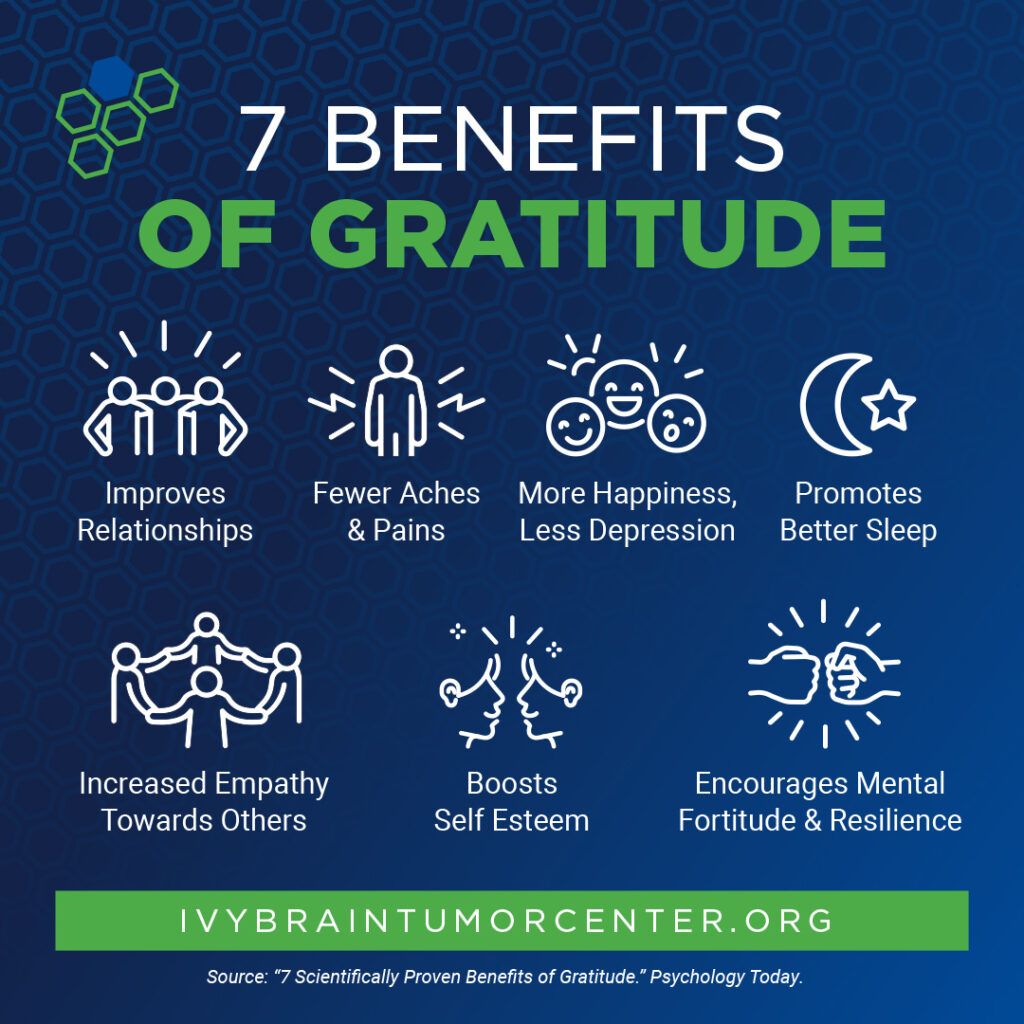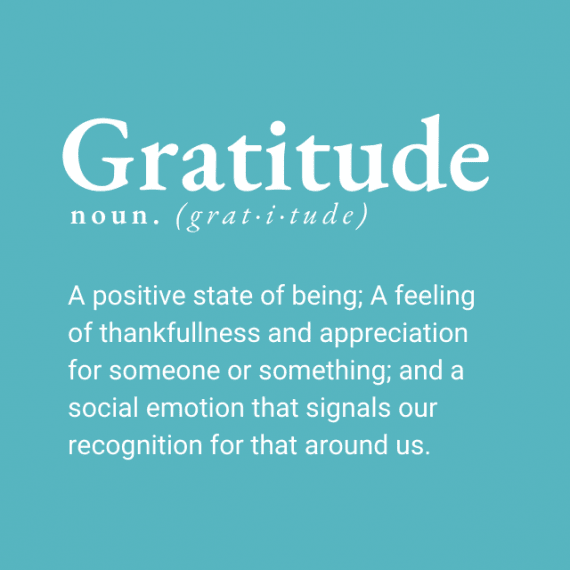Embracing Gratitude: Finding Joy in the Present
Gratitude, a simple yet profound concept, has the power to transform our lives in remarkable ways. It is the art of recognizing and appreciating the blessings, big and small, that enrich our existence. Defined as "a positive emotional response that we perceive on giving or receiving a benefit from someone or something," gratitude has been a subject of extensive research and is highly regarded in the field of positive psychology (Emmons & McCullough, 2003).
As the philosopher Marcus Tullius Cicero once said, "Gratitude is not only the greatest of virtues but the parent of all others." It is the virtue that ignites a chain reaction of positivity, resilience, and well-being in our lives. When we practice gratitude, we shift our focus from what is lacking to the abundance that surrounds us, finding contentment and joy in our present state.
Consider the words of Oprah Winfrey: "Be thankful for what you have; you'll end up having more. If you concentrate on what you don't have, you will never, ever have enough." These words encapsulate the transformative power of gratitude. It redirects our attention to the blessings already present, turning them into sources of fulfillment and satisfaction.
In a world that often encourages us to constantly strive for more, gratitude offers a refreshing perspective—a reminder to pause, reflect, and be thankful for what we already have. It is an invitation to find contentment and joy in our present state, no matter the circumstances.
As the poet Melody Beattie beautifully said, "Gratitude turns what we have into enough." It redirects our focus from what is lacking to the abundance that surrounds us. When we cultivate a genuine sense of gratitude, we unlock a wellspring of positivity, resilience, and fulfillment. The benefits of gratitude ripple through every aspect of our lives, shaping our relationships, enhancing our well-being, and nurturing our overall outlook on life.
Imagine this: You arrive home after a long, tiring day, feeling worn out and drained. As you open the door, a faint aroma fills the air—it's the comforting scent of a homemade meal lovingly prepared by a family member, be it your wife, your mother, husband or even daughter or son. Your exhaustion momentarily fades as you realize the warmth and care that went into creating this simple gesture. In that moment, you experience a surge of gratitude, a deep appreciation for the love and support that surrounds you. It's moments like these that remind us of the incredible power of gratitude—the ability to shift our perspective and infuse even the most ordinary moments with joy and meaning.
Throughout this blog post, we will explore the significance of gratitude in our lives. We will delve into the benefits it brings, the practical ways to cultivate a gratitude mindset, and the transformative effect it has on our present moment. So, let us embark on this journey together, as we discover the beauty and richness that lies within the practice of gratitude.
Practicing gratitude goes beyond a mere act of appreciation. It has profound effects on our well-being, relationships, and overall outlook on life. Let's explore the research-backed benefits of incorporating gratitude into our daily lives.
Enhanced Well-being and Happiness
Numerous studies have shown that cultivating gratitude leads to increased levels of well-being and happiness. In a landmark study conducted by Emmons and McCullough (2003), participants who kept a gratitude journal and regularly noted things they were grateful for experienced higher levels of positive emotions, optimism, and life satisfaction. Gratitude acts as a natural mood booster, fostering a positive mindset and helping us savor the positive experiences in our lives.
Improved Physical and Mental Health
Gratitude has been linked to improved physical and mental health outcomes. Research by Wood, Froh, and Geraghty (2010) revealed that individuals who expressed gratitude had lower levels of perceived stress and depression, as well as higher levels of self-esteem and overall psychological well-being. Additionally, gratitude has been associated with better sleep quality, reduced blood pressure, and strengthened immune system functioning (Kini et al., 2016). These findings highlight the profound impact gratitude can have on our holistic health.
Strengthened Relationships
Gratitude plays a pivotal role in nurturing and strengthening our relationships. When we express gratitude towards others, we create a positive atmosphere and deepen the connection. A study by Algoe, Haidt, and Gable (2008) found that expressing gratitude towards a romantic partner led to increased relationship satisfaction and a stronger bond. Gratitude also fosters prosocial behavior, kindness, and empathy, which contribute to healthier and more fulfilling interpersonal relationships (Bartlett et al., 2012).
Enhanced Resilience and Coping Skills
Gratitude has been shown to enhance resilience and help individuals cope with challenging situations. When we focus on the positives and acknowledge the things we are grateful for, we develop a more optimistic outlook and are better equipped to navigate adversity. A study by Froh, Kashdan, Ozimkowski, and Miller (2009) found that grateful adolescents displayed greater resilience, higher levels of positive emotions, and lower levels of negative emotions. Gratitude acts as a protective factor, helping us find strength and meaning even in difficult times.
Shifted Perspective and Increased Mindfulness
Practicing gratitude cultivates a mindset of mindfulness and shifts our perspective towards the present moment. It encourages us to notice and appreciate the beauty and goodness around us, promoting a sense of awe and wonder. Research by Bryant, Smart, and King (2005) showed that gratitude interventions increased individuals' awareness of positive experiences and led to a greater focus on the present moment. By being fully present and engaged, we can savor the richness of life and find joy in the simplest of things.
These research findings provide compelling evidence for the transformative effects of gratitude. By incorporating gratitude into our daily lives, we can enhance our well-being, nurture our relationships, build resilience, and develop a more positive and mindful outlook on life.

Cultivating a Gratitude Mindset
Cultivating a gratitude mindset is a transformative practice that allows us to shift our focus towards the positive aspects of our lives.
Keep a Gratitude Journal
One effective way to cultivate gratitude is by keeping a gratitude journal. Set aside a few minutes each day to write down three things you are grateful for. It can be as simple as a beautiful sunset, a kind gesture from a friend, or a personal accomplishment.
Practice Meditation
Express Gratitude to Others
Make a conscious effort to express gratitude to the people around you. Take a moment to thank someone for their support, kindness, or contributions. Research by Algoe and Haidt (2009) revealed that expressing gratitude towards others not only strengthens relationships but also promotes positive emotions in both the giver and receiver. It creates a reciprocal cycle of gratitude and kindness that fosters deeper connections and a sense of community.
Find Gratitude in Challenges
Even during difficult times, there are often silver linings or lessons to be learned. Cultivate gratitude by reframing challenges as opportunities for growth and resilience. Look for the positives amidst adversity and express gratitude for the lessons learned or the strength gained. Research by Watkins, Woodward, Stone, and Kolts (2003) showed that individuals who found gratitude in challenging situations exhibited higher levels of well-being and life satisfaction. This shift in perspective can empower us to find meaning and gratitude even in the face of hardship.
Practice Random Acts of Kindness
Engage in acts of kindness and service towards others without expecting anything in return. Engaging in random acts of kindness not only brings joy to others but also enhances our own sense of gratitude and well-being. Research by Lyubomirsky, Tkach, and Sheldon (2004) found that engaging in acts of kindness led to increased happiness and enhanced life satisfaction. By spreading gratitude and kindness, we contribute to a positive and compassionate world.
Spread Positivity on Social Media

Utilize social media platforms as a means to spread positivity, gratitude, and kindness. Share uplifting stories, inspirational quotes, or express gratitude for something that brings you joy. Use your online presence as a force for good, inspiring others to cultivate gratitude in their own lives.
Conclusion
Remember, cultivating a gratitude mindset is a continuous practice. Embrace these strategies and make them a part of your daily routine. Gratitude invites us to shift our perspective, redirecting our attention to the abundance that surrounds us.

It teaches us to appreciate the simple joys, the acts of kindness, and the blessings that often go unnoticed. As we express gratitude, we not only nurture our own well-being but also strengthen our relationships, build resilience, and create a ripple effect of positivity.
Let us remember the words of William Arthur Ward: "Gratitude can transform common days into thanksgivings, turn routine jobs into joy, and change ordinary opportunities into blessings." Gratitude is a lens through which we can view the world with renewed appreciation and wonder.
Over time, you will find that gratitude becomes a natural and ingrained way of approaching life, allowing you to experience greater joy and fulfillment.

Utilize social media platforms as a means to spread positivity, gratitude, and kindness. Share uplifting stories, inspirational quotes, or express gratitude for something that brings you joy. Use your online presence as a force for good, inspiring others to cultivate gratitude in their own lives.
Conclusion
Remember, cultivating a gratitude mindset is a continuous practice. Embrace these strategies and make them a part of your daily routine. Gratitude invites us to shift our perspective, redirecting our attention to the abundance that surrounds us.
It teaches us to appreciate the simple joys, the acts of kindness, and the blessings that often go unnoticed. As we express gratitude, we not only nurture our own well-being but also strengthen our relationships, build resilience, and create a ripple effect of positivity.
Let us remember the words of William Arthur Ward: "Gratitude can transform common days into thanksgivings, turn routine jobs into joy, and change ordinary opportunities into blessings." Gratitude is a lens through which we can view the world with renewed appreciation and wonder.
Over time, you will find that gratitude becomes a natural and ingrained way of approaching life, allowing you to experience greater joy and fulfillment.











Comments
Post a Comment